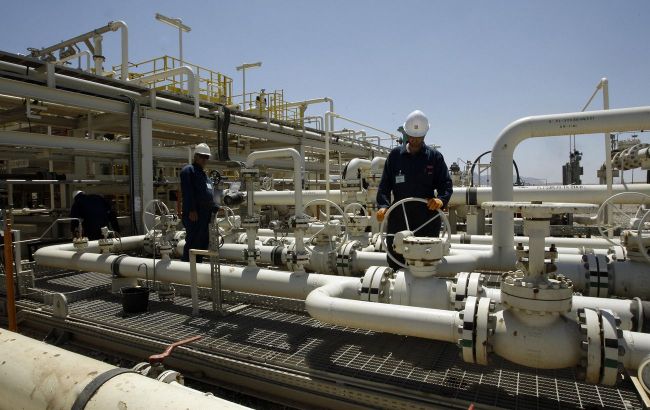How Israel’s attack on Iran could drive up fuel prices in Ukraine
 Photo: The oil industry has not been affected by the conflict in the Middle East (Getty Images)
Photo: The oil industry has not been affected by the conflict in the Middle East (Getty Images)
Following Israel’s overnight strike on Iran, global oil prices have surged sharply. Ukraine, as an importer of petroleum products, may also feel the effects of rising prices, but it is too early to draw conclusions, said Serhii Kuiun, director of the consulting company A-95, which specializes in the oil and petroleum product markets.
"If global oil prices return to previous levels within a short period, this price spike will not affect the Ukrainian fuel market," the expert said.
Serhii Kuiun added that oil prices often respond quite dynamically to any events.
"There is no need to jump to conclusions. Prices always react very sensitively to any rumors, not to mention situations when missiles are flying. Sooner or later, they return to lower levels," he said, adding that global oil prices have already started to decline after news emerged that Iran’s oil industry was not damaged.
He noted that it is too early to draw conclusions about the long-term behavior of oil prices. "Right now, stirring panic and saying prices will rise is very premature. It is possible that within a few days, prices will return to their previous levels. Prices rise quickly and fall just as fast," said Serhii Kuiun.
Oil price surge
According to Bloomberg, the price of futures for benchmark Brent crude oil jumped to $78.3 per barrel immediately after reports of Israel’s strike on Iran — a 13% increase compared to the previous day. Within 40 minutes, prices fell to $75.4 per barrel, and as of 10:50 a.m. Kyiv time, the price had decreased further to $73.59 per barrel.
The last time the price exceeded $75 per barrel was on April 2, when US President Donald Trump announced a trade war against most countries worldwide.
Iran’s share of the global oil market
According to monthly OPEC reports, Iran produced 2.6 and 2.9 million barrels of crude oil per day in 2022 and 2023 respectively, accounting for 9–10% of total OPEC oil output. In 2024, Iran increased its average daily production by 14% to 3.3 million barrels per day, or 12% of total OPEC production.
According to the International Energy Agency, global oil production in December 2024 amounted to 103.5 million barrels per day. Thus, Iran’s share of global oil output at the end of 2024 stood at 3.1%.
In the early hours of June 13, Israel launched Operation "Lion's People" against Iran. As part of the operation, the IDF carried out airstrikes on Iranian nuclear and military facilities.
Commenting on the strikes, US President Donald Trump stated that Tehran "cannot have a nuclear bomb." The White House denied any involvement and expressed hope that Iran would return to the negotiating table.
According to the IDF, Iran had been developing a "Plan to destroy Israel" and was advancing plans for a coordinated ground offensive on multiple fronts simultaneously.

